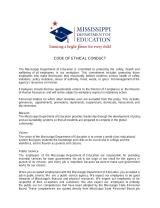What does CMT stand for in mortgage?
In the context of mortgages, CMT stands for "Constant Maturity Treasury." It refers to the Constant Maturity Treasury index, which is a commonly used benchmark for adjustable-rate mortgages (ARMs) in the United States. The CMT index is a yield curve based on the U.S. Treasury securities, specifically the yields on various maturities of Treasury bills, notes, and bonds.
Lenders use the CMT index as a reference to determine the interest rate on adjustable-rate mortgages. When you have an ARM, your interest rate is typically tied to a specific index, such as the CMT, and your rate can change periodically based on changes in the index.
The CMT index represents the yield on U.S. government debt with different maturities, ranging from short-term to long-term. The particular maturity used for your ARM is typically stated in your mortgage agreement. For example, a 1-year CMT ARM uses the yield on a one-year Treasury note as its reference.
As the CMT index fluctuates in response to changes in the bond market, your mortgage interest rate can also adjust up or down, which is why it's known as an adjustable-rate mortgage. The specific terms of how your interest rate adjusts will be outlined in your mortgage agreement, including factors like how often the rate adjusts and any rate caps or limits to protect you from significant rate increases.
Deciphering CMT in the Mortgage Industry
CMT stands for Constant Maturity Treasury. It is a benchmark interest rate used in various financial applications, particularly in the United States. It represents the yield on U.S. Treasury securities with various maturities. The CMT serves as a reference rate for determining the interest rates on mortgage loans, investments, and other financial instruments.
What Does CMT Stand for in Mortgages?
In the mortgage industry, CMT is used to set the interest rates on adjustable-rate mortgages (ARMs). ARMs have interest rates that can fluctuate over time, based on a benchmark interest rate such as the CMT.
The Role and Significance of CMT in Home Financing
The CMT plays a crucial role in home financing by serving as a benchmark interest rate for mortgage rates. This means that the CMT can have a significant impact on the affordability of mortgages for borrowers.
The CMT also plays a role in determining the profitability of mortgage lending for banks and other lenders. When the CMT is high, lenders can charge higher interest rates on mortgages, which can increase their profits.
How CMT Affects Mortgage Interest Rates
The CMT affects mortgage interest rates in two ways. First, it serves as a reference rate for lenders when setting their mortgage rates. Second, it can influence the overall demand for mortgages. When the CMT is low, mortgage rates are typically lower as well. This can lead to an increase in demand for mortgages, which can further drive down mortgage rates.
Implications of CMT for Borrowers and Lenders
The CMT has implications for both borrowers and lenders. For borrowers, the CMT can affect the affordability of their mortgages. When the CMT is high, mortgage rates are typically higher as well, which can make it more difficult for borrowers to qualify for a mortgage or to afford their monthly payments.
For lenders, the CMT can affect their profitability. When the CMT is high, lenders can charge higher interest rates on mortgages, which can increase their profits. However, when the CMT is low, mortgage rates are typically lower as well, which can reduce lenders' profits.
Conclusion
The CMT is an important benchmark interest rate that plays a significant role in the mortgage industry. It affects both borrowers and lenders by influencing mortgage interest rates and profitability.











